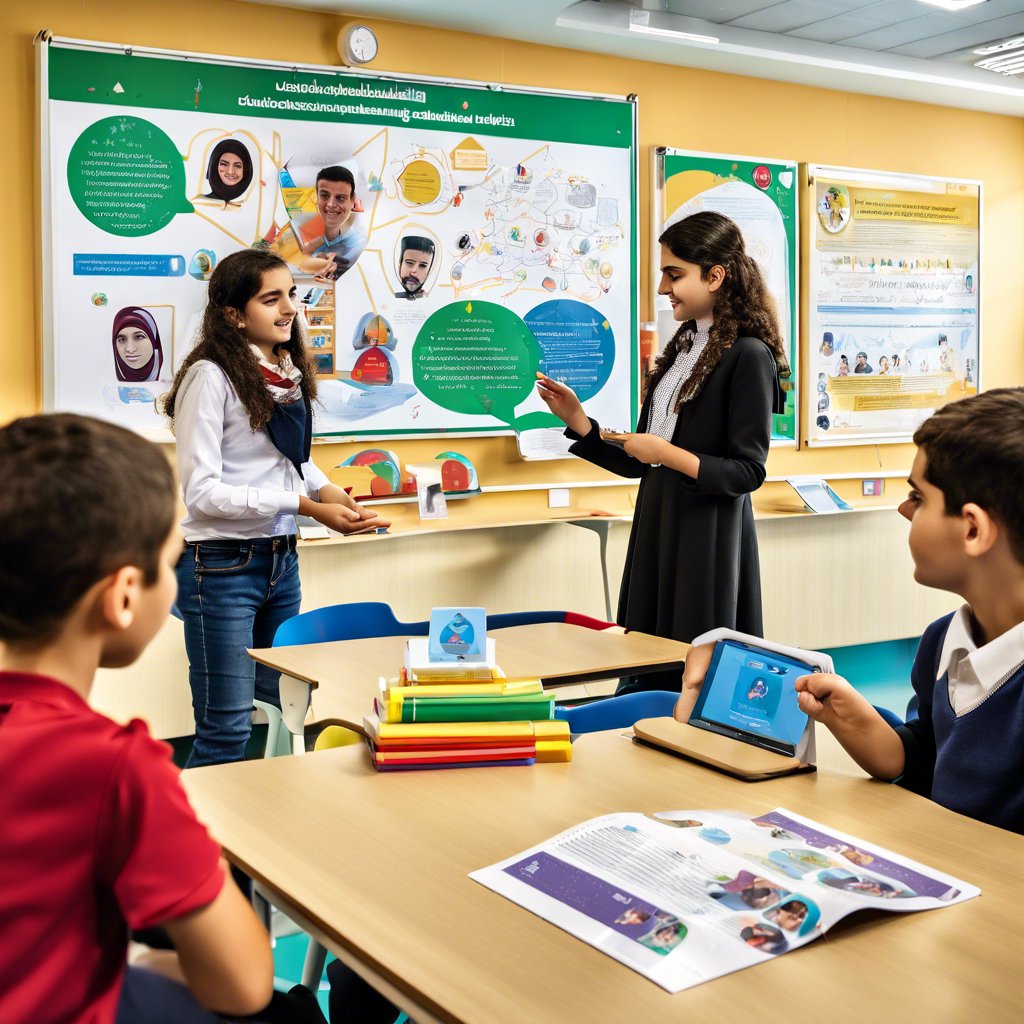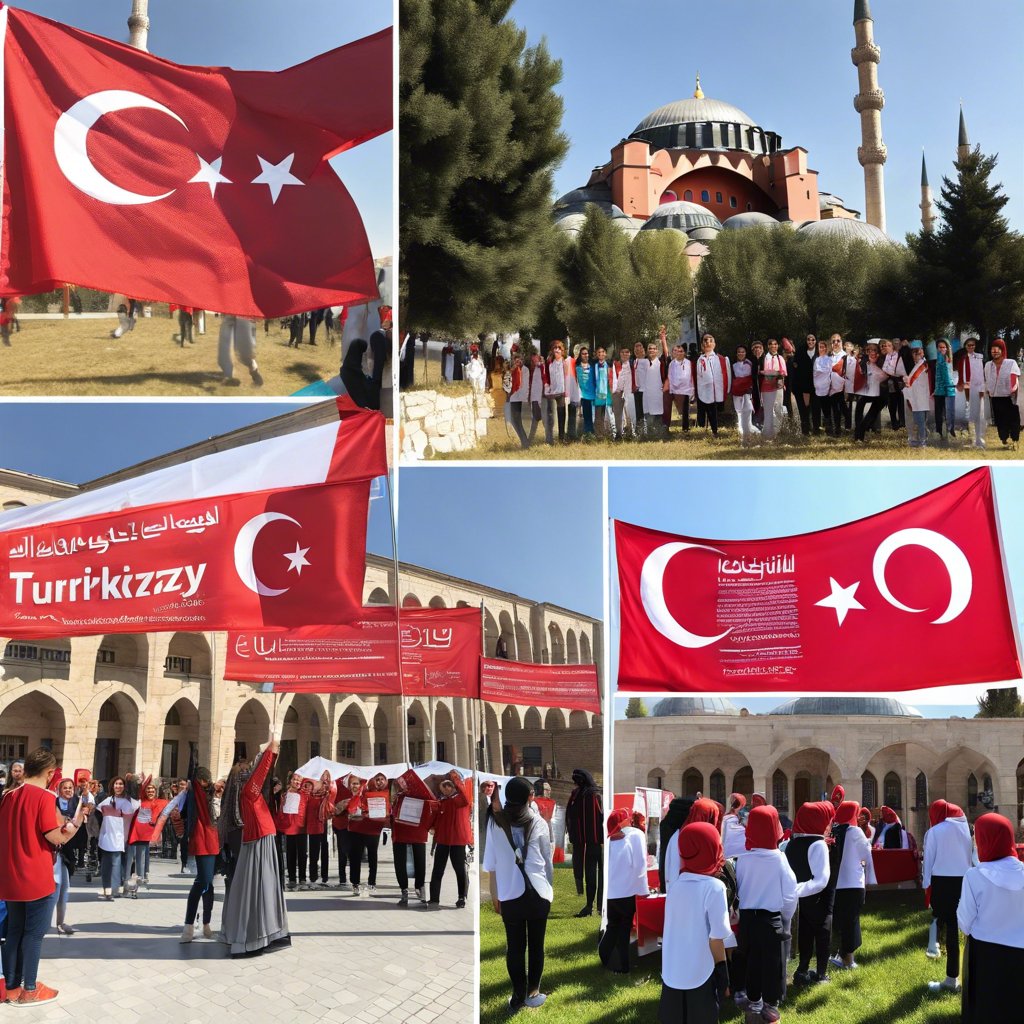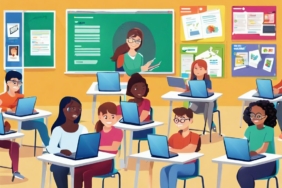Evaluation of ERG’s Report on Türkiye’s Century Education Model
The Turkey Century Education Model stands out as an effort to create an education system based on Turkey’s unique cultural and historical heritage. The report prepared by the Education Reform Initiative (ERG) focuses on certain conceptual and terminological preferences while addressing this model and criticizes them. However, the report’s approach and evaluation criteria draw attention by not sufficiently understanding the concepts put forward regarding Turkey’s education model based on a Western-centered understanding of education and by directing criticisms in this context. Turkey’s effort to create an education model based on its own cultural and historical values should be evaluated with its own unique philosophy and concepts rather than being criticized through Western-centered approaches.
Below is an overview of the report’s key criticisms:
- 1.The report refers to the program as a “communication document.” It is not clear why or for what purpose this expression is used. It is not explained why there is a need to use such an expression for a curriculum.
- 2.Another expression put forward in the report appears as an effort to create “education communication.” This definition is even stranger than the definition of “communication document,” and it is not clear how it relates to the program.
- 3.The ERG report defined the terms “Education”, “ideology”, “eloquent”, “knowledgeable” instead of “cognitive” and “mental” instead of “attitude” and “disposition” instead of “attitude” as founding concepts and stated that These concepts were used instead of mainstream concepts and this blurred the meaning of existing concepts. According to the report, Education should be used instead of Education, but it did not take into account that education is not a concept that can be used instead of education and that education is not a concept that can be used instead of education. The situation will actually be better understood if the meanings of these concepts are examined. In addition, ideal was not used instead of any concept, concepts such as “eloquent”, “knowledgeable” were expressed as founding concepts even though it was not stated which concept was preferred instead, and therefore it was meant that they were the founding concepts of the new communication language that was being tried to be created. Education should already create an educational language that belongs to the country and systematically develop and spread this original language that its own people can understand each other correctly. The situation that is found to be wrong here is actually a situation that should be supported and contributed to as it is expected from education. It is fundamentally wrong to evaluate the program by accepting as true some concepts that do not have a counterpart in our culture and do not fully meet the work done but are imposed on us because they are universal and by placing those concepts at the center. Because a curriculum to be implemented in Turkey should reflect the culture, belief, lifestyle and history of the people living in Turkey. It is wrong to look at the program from this perspective by placing concepts and perspectives that are claimed to be universal but basically represent mostly Western culture and belief at the center.
- 4.The report mentions creating new concepts, but the concepts expressed as new concepts and given above are known to be much older than the concepts expressed as mainstream education literature, which actually date back at most 50 years, and have been used for perhaps 1000 years. Being new can only be a valid expression for the person who prepared the report. On the other hand, it is not understood which mainstream the concepts presented as mainstream education concepts represent. When talking about mainstream education concepts here, I think the following situation is being mentioned. Concepts such as school instead of school, education instead of training and discipline, science instead of knowledge, etc. have been accepted as mainstream education concepts. However, who decided that these are mainstream education concepts? Who can say that the others are new? Did the author decide on these or is it written somewhere like this? Here, the report accepts the concepts in our education literature that reflect approximately the last 50 years as mainstream, but it accepts the concepts that have been used for approximately 1000 years, some of which have decreased in use, although not completely disappeared, and others education-related concepts that are still used but accepted as old language, as new and invalid.
- 5.The use of “conceptual skills” in the report is generally defined as a skill set associated with abstract thinking in the literature, especially in management sciences, while in the document it is used to define the “relational process components of skills” as basic, integrated and higher-order thinking skills. This definition has made it difficult to understand conceptual skills and has created ambiguities. There is a criticism in the form of this, and it is a partially correct criticism. Conceptual skills are taken from the K12 skills framework text. Since it is defined that way there, it is used in the same way in the program. This definition is stated in the report as “very meaningless and insufficient”. Although conceptual skills are not as meaningless and insufficient as the report claims, they could have been expressed in a more understandable and accurate way.
- 6.Criticism: “The concept generally used as “readiness” in the literature has been replaced by “basic assumptions”. “It is striking that there is no justification for this choice.” This criticism is also fully justified. Readiness does not mean basic assumptions. However, since it is not explained in the text that it is not the case, it is perceived as being used instead.
- 7.Criticism: Of course, if the concepts do not find a response, they can be transformed or revised; However, justification of these transformations and revisions is extremely important and necessary, especially for foundational texts such as educational programs. The weakness reflected in the general justifications may stem from the effort to show loyalty to a certain approach instead of the relationship expected to be established with a consistent and well-thought-out theoretical background. The radical and unjustified removal or transformation of concepts taken from disciplines such as psychology and sociology, which educational sciences are based on, from educational terminology may have dramatic consequences in terms of the language and communication of academic studies. The weak relationship established with the existing basic disciplines is one of the signs of this. When the entire text is scanned, it is seen that the references to the discipline of psychology, which is the basis of a significant part of education and learning theories, are insufficient. The term “psychology” is used only once, and this use is probably thought to be coincidental. Because in similar sentences, “mental health” is preferred over the term psychology. “Sociology” is used six times and as “sociological thinking”, which emphasizes the meaning of society rather than a scientific discipline. The concepts of “Educational Sciences” or “Pedagogy” have not been found any place in the text even at the expression level. As above, this criticism is related to the concepts that the report focuses on and the worldview and philosophy it adopts through these concepts. It can be said that there is an effort to localize the language of education in this program, but while doing this, it is necessary to accept using a local, cultural and historical heritage-reflecting language instead of a secular, western and modern language of education As can be understood, the report is fundamentally against this idea. Therefore, it does not seem possible to accept the word maarif or the concept of idealism instead of education, no matter how much it represents the meaning it represents. Because it does not question it. Criticisms are constantly made about why these concepts exist, why the concepts we currently use have not been used. But the program already mentions such a claim. That our own civilization will be at the center. This can only happen with concepts.
- 8.Criticism: It is said that concepts such as child, pedagogy and educational sciences are not used in the program. First of all, this program covers all ages from preschool to university and also targets young people. In addition, using or not using the concept of the child should not be understood as a purpose of the program. In the program, the concept of human, which covers all ages, is used in general and it is used quite correctly. In addition, it is stated that human development is planned holistically and that work should be done in relevant areas for this, correctly and appropriately. As stated in the report, not using the concepts of psychology, pedagogy or child when they should be used, comes across as a prejudiced and deliberate criticism. If we look at the issue from this perspective, there are many concepts that are not used in the common text of the Model. Each one needs to be criticized separately, in which case there would be no end to this work. It is mentioned that the education program targets human development holistically and expressions such as “knowledge, skills, tendencies and values are addressed by strengthening them with talent, interest, needs and individual differences in the programs” are included in the text as sufficiently understandable and well-thought-out expressions.
- 9.Criticism: “Although the text does not explain what the natural characteristics of man are, it can be said that these are “social images.” This statement shows that the mental profile of the author of the report and that he actually criticizes why the concept is used rather than what the concept means. Because if the report were to proceed by explaining all the concepts it uses, it would have to be about ten times the size of its current form. Just as it was previously claimed that there is no need. to explain the concepts when you use the concepts of pedagogy or psychology in education, the fact that the natural characteristics of man are not explained is not a deficiency of the curriculum but a deficiency of the report or the author of the report Concepts such as. natural characteristics of man, ideals, knowledge and tendency are concepts used in our history of education, science, culture and civilization and are familiar to the average book reader. The real problem here is that these concepts are found incomprehensible or are perceived as inappropriate. Therefore, this criticism can also be considered as an unfair and unfounded criticism.
- 10.Criticism: “The emphasis on society and its future, which is spread throughout the text, shows that the idea that the crises experienced in the adult world can be solved through educational institutions dominates the model. However, children are not the direct addressees of many Issues, from climate crisis to moral decay and inclusiveness. On the contrary, children are among the main affected by these crises. Moreover, the crises of the adult world are based on complex and multidimensional reasons such as economic inequality, political instability, cultural conflicts. and changes in family structure. The root causes of such problems lie in areas that require solutions outside the education system. In addition, charging the education system with the task of solving the crises of the adult world can cause educational institutions to be under ideological pressure. . As Bourdieu and Passeron emphasize in their work “Reproduction in Education, Society and Culture”, educational systems tend to reproduce the existing power relations in society. Therefore, overloading the education system can only produce superficial solutions without addressing the root causes of these problems. Educational institutions were established to ensure that individuals acquire knowledge, skills and values. However, charging the education system with the solution of social problems entirely means overextending the function of schools. As John Dewey stated, the fundamental duty of educational institutions is to ensure that students are raised as effective individuals in a democratic society. However, leaving the solution of social problems solely to the education system can also make it difficult to fulfill this fundamental duty. The relevant paragraph given as the basis for this claim suggests that all of society’s problems are being tried to be solved through education and that education is being given too much responsibility for this reason, which is a forced and distorted interpretation. Because curriculums are partially idealized theoretical texts aimed at solving the problems that countries experience in order to reach the prosperous social structure in which they want to raise their children. In these texts, there is no such approach as to solve some of the problems of society and leave some untouched because they are the subject of other fields. The aim is to solve all problems, but the more successful you are in practice, the more successful a program you will have been. The sources given in the report to support the claim are also irrelevant to the subject. Although John Dewey’s claim that “the fundamental duty of educational institutions is to ensure that students are raised as effective individuals in a democratic society” is a correct observation, the claim in the report cannot be supported with a correct statement that is not relevant to the subject Also, what Dewey said should not have any effect on our education system. We have many good things to say and resources on this subject.
- 11.Criticism: “Gender equality should be emphasized: In educational programs, gender equality should be emphasized in particular, and gender equality should be included in all lessons and activities. Raising awareness in students about gender equality and gender roles will ensure that egalitarian approaches are adopted in every segment of society.” The problem with an egalitarian approach in every segment of society in Turkey is not gender equality, but between the segment that considers itself elite and intellectual and the majority of society. Not only is there no inequality in gender equality, but the issue is constantly turned into a problem with such discourses. This issue, which has nothing to do with the program or Turkey’s current educational problems, is presented as a very important and major problem, creating the impression that there is such a problem in Turkey. However, both the program and the existing books already have a very sensitive approach on this issue and take our customs and traditions into consideration. This is the right thing to do. With the Turkey Century Education Model, Turkey’s efforts to create an education system based on its own civilizational values are overshadowed by such suggestions, and the education system is sought to be restructured in line with secular and Western values.
In conclusion;
The ERG report on the Education Model of the Century of Turkey was prepared as a critical approach based on certain conceptual preferences and terminological innovations. In particular, the language and style of criticism used in the report can be evaluated as unfair and unfounded criticisms of Turkey’s original education philosophy and approaches due to the fact that Western-centered concepts and understandings are placed at the center. First of all, the use of expressions such as “communication document” and “education communication” is not understood, and it is understood that the report ignores the fact that these terms should be handled in an effort to create a local language and concept within the education system. Similarly, the failure to understand and criticize these concepts such as “maarif”, “idea”, “eloquent”, “reaching knowledge”, which are used instead of the Western-centered education understanding, shows that the report is evaluated from a perspective distant from Turkey’s educational history and cultural heritage. In short, some educational thought models are placed at the center in this report and we are asked to shape our education system accordingly. However, our real problem stems from our inability to place our own thought and education models at the center. This report actually suggests that we continue making the same mistake. The report also sees suggestions imposed as modern and universal values such as gender equality as ideological interventions that could harm the original structure of the local education model. With the Turkey Century Education Model, Turkey’s efforts to create an education system based on its own civilizational values are overshadowed by such suggestions, and the education system is requested to be restructured in line with secular and Western values. As a result, the ERG’s report on the Turkey Century Education Model includes criticisms directed at ideological ideas and a lack of understanding of certain concepts. Turkey’s efforts to create an education model based on its own cultural and historical values should be evaluated with its own unique philosophy and concepts, rather than being criticized through Western-centered approaches. Therefore, the report generally exhibits a biased and ideological approach, and ignores the aim of addressing Turkey’s education system in its own historical and cultural context.












